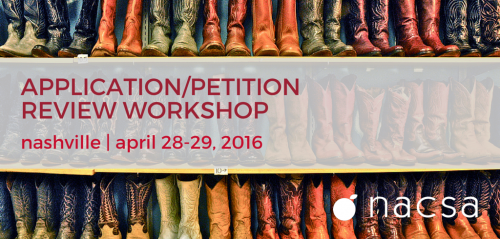This year’s State of Charter Authorizing (SOCA) data revealed approximately 10 percent of large authorizers do not interview charter applicants on the merits of their application. Moreover, one in four large authorizers do not seek out the expertise of others outside their organization to weigh whether an applicant is worthy of opening a school in their community.
You would never hire an individual for your team without interviewing them first. Moreover, you would probably consult with an expert or two, to ensure the person has the right skills and qualifications for your team.
So, it seems only natural to extend these practices to charter school applicants—would-be school operators seeking public funding to educate our nation’s children. Yet, as our SOCA data shows, adoption of these practices—interviewing qualified applicants and leveraging external expertise during application review—isn’t as widespread as you may think.
There are a number of reasons authorizers may not implement these practices: they may lack the capacity and resources to execute them; they may not have received applications for new schools in a number of years; or maybe they have concerns about letting outsiders in as part of their process.
But the benefits to implementing these two essential practices far outweigh any perceived challenges. As you probably know from interviewing a job candidate or two, what is on paper isn’t always reality. Interviews allow authorizers to ask clarifying questions and speak directly with those who will hold the responsibility of educating a community’s children with community’s taxpayer dollars. We’ve heard horror stories from authorizers who have called board members listed on a charter application, only to find they didn’t know they were listed on the application at all. Moreover, experts from outside an authorizing office provide a second pair of eyes—and often a trained skillset and knowledge base that may not be currently available within department.
How can an authorizer go about adopting these two essential practices to foster a rigorous and thorough application process, or improving them if they already have them in place? It isn’t as difficult as you may think.
You don’t have to do it alone either. NACSA is here to help.
NACSA is hosting a workshop for authorizers focused on fostering a quality application and petition review process grounded in national best practices. The event will take place in Nashville this April 28 and 29. There is no cost for authorizers to attend, but advanced RSVP is required.
The children in your communities are counting on you to provide them with quality school choice options. Leveraging essential practices as part of your application process helps to ensure that only the best applicants are granted charters.
This event is funded in part by a National Leadership Activities grant from the federal Department of Education’s Charter Schools Program.
Photo Credit: “8/30 Days of Gratitude” by rrelhm used under CC BY 2.0 / Added text overlay.



